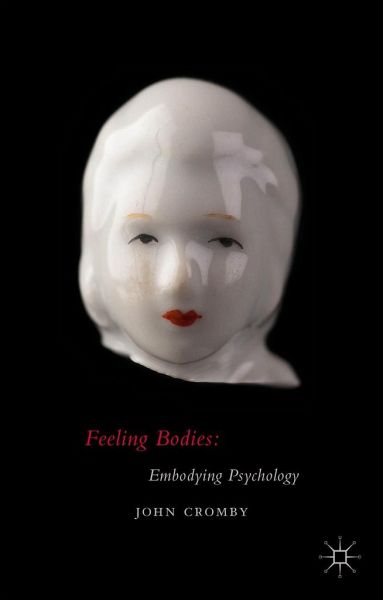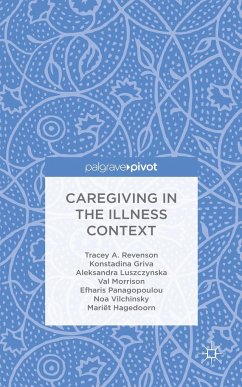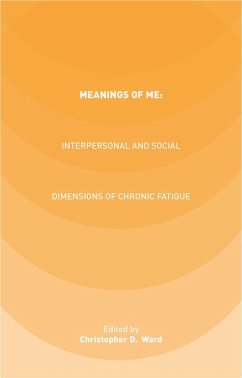
Versandkostenfrei!
Versandfertig in 6-10 Tagen

PAYBACK Punkte
42 °P sammeln!





Before we are anything else, we are feeling bodies. In fact, feelings are an important part of every experience we ever have. This book explains what feelings are, describes their relationship with other psychological phenomena, and shows how their analysis transforms understandings of some key topics related to health and illness.
John Cromby previously conducted research and teaching at the Universities of Nottingham and Bradford, and has experience of working in mental health, drug addiction, and learning disability settings. His work engages with the ways that bodies and social processes come together to produce experience, including experiences of distress. This has meant exploring topics including paranoia, clinical sadness, emotion and fear of crime, and experimenting with methods of jointly analysing textual data and embodied activity. He is a former editor of the journal Subjectivity.
Produktdetails
- Verlag: Palgrave Macmillan / Palgrave Macmillan UK / Springer Palgrave Macmillan
- Artikelnr. des Verlages: 978-1-137-38057-9
- 1st ed. 2015
- Seitenzahl: 221
- Erscheinungstermin: 16. Juli 2015
- Englisch
- Abmessung: 216mm x 140mm x 14mm
- Gewicht: 418g
- ISBN-13: 9781137380579
- ISBN-10: 1137380578
- Artikelnr.: 42457272
Herstellerkennzeichnung
Libri GmbH
Europaallee 1
36244 Bad Hersfeld
gpsr@libri.de
'This book is not just timely, it's long-overdue. It weaves together a sophisticated, engaging argument that draws on philosophy, neuroscience and an array of psychology sub-fields to firmly locate feelings at the heart of an embodied psychology. It provides a majestic and broad account of the affective realm (including emotions, moods, affects and feeling) and its relevance to psychology, interrogating why this realm has been treated as relatively unproblematic (and under-explored) despite the 'affective turn' that has taken place elsewhere in the social sciences and humanities.
Cromby's writing sweeps the reader up and takes them through wide-ranging and convincing arguments that feelings are central to all of the diverse fields
Cromby's writing sweeps the reader up and takes them through wide-ranging and convincing arguments that feelings are central to all of the diverse fields
Mehr anzeigen
within psychology. Here feelings are simultaneously social and individual, related to ideologies as well as socialised experiences. He grounds his argument by considering the ways in which we might investigate and interrogate such an approach, using worked examples in health and clinical psychology (across 3 chapters). This demonstrates its value in enabling thorough re-conceptualizations of key psychological phenomena, from the biological to the social, which incorporate experience, the materiality of the body as well as material environments and circumstances. This inspiring account marks feelings out as a way to re-envision many key psychological concepts, including fundamental notions of personhood, embodiment, and embodied subjectivity. This book is essential reading for anyone who wants to move beyond dominant conceptualisations of the person as separated into individual/social, nature/culture, and body/mind dichotomies.' Antonia Lyons, Professor of Psychology, Massey University, New Zealand
Schließen
Für dieses Produkt wurde noch keine Bewertung abgegeben. Wir würden uns sehr freuen, wenn du die erste Bewertung schreibst!
Eine Bewertung schreiben
Eine Bewertung schreiben
Andere Kunden interessierten sich für











